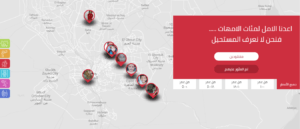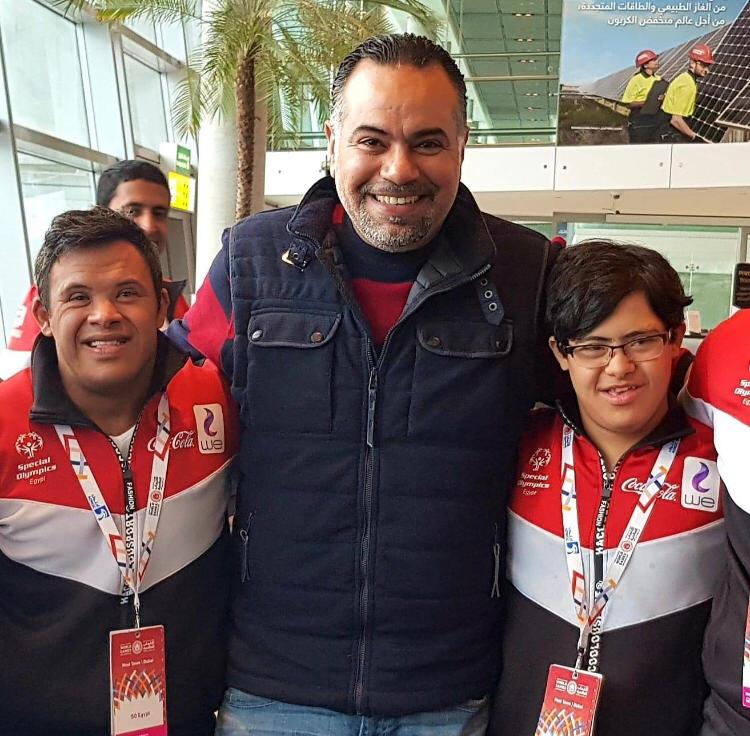Missing children was an online initiative. Now we’re in the process of turning it into a fully-fledged organization; an entity with headquarters. With the use of facial recognition technologies and building giant databases we can pull off a service that stands out on an international level.
Rami Elgebali, Founder of Missing Children.
The problem and the beginning

Rami Elgebali in conversation. Photo taken by Mostafa Sadek.
In Egypt, according to the latest report issued by the National Council for Motherhood and Childhood’s Child Helpline, there were 412 recorded cases of missing children in 2015. Since then, no further reports have been disclosed by the National Council for Motherhood and Childhood or any other relevant governmental or non-governmental organizations specializing in the matter. But the abuse and trafficking of missing children remains an issue that is more often than not reported in all kinds of media.
Building a service-oriented organization with the goal of helping parents find their missing children might seem like a daunting task. But Rami Elgebali, the IT and services professional and founder of Missing Children (who is a father himself), went out of his way to approach it head-on.
Briefly put, Missing Children is an organization dedicated to saving missing children from the weighty, life-threatening dangers they’re more often than not exposed to. Elgebali’s journey with Missing Children began with his grave concerns around the quandary of missing children in Egypt. These concerns led him to create the Facebook page ‘Missing Children’ (or ‘Atfal Mafkoda’ in Arabic) back in 2015.
In 2018, the page received $50,000 from Facebook’s Community Leadership Program with Facebook verifying on the program’s page that the initiative “helped more than 950 people make their way back to their families.” Now the page has over 1.5 million likes. You can read more about the origins, evolution and challenges of Missing Children here. Currently, however, Elgebali and his team are taking Missing Children to the next level.
The website and the database

A sneak peek into the website which is still under construction.
“Our main function, just like Missing Children’s Facebook page, will be to properly document missing children and connect them to their parents,” said Rami Elgebali prefacing a phone call we had to discuss Missing Children’s near future. “We’re about to finalize the beta version (the version used for testing purposes) of the website. The website will employ the facial recognition software, maps, and statistics we need to help us on our mission,” he continued. According to Elgebali, the website will feature a continually updated database of missing children in Egypt alongside their status. This database will allow the website’s users to find out, among other things, the number of missing children across Egypt within a specific time in a certain location. You can filter your search by name, time, age and location.
“An accessible database with a strong search algorithm will make the process of finding missing children a lot easier and a lot more efficient. It’s an essential gap in the process of finding missing children that we need to bridge. We’ll start with Egypt’s map but we’re planning to go international later on,” he asserted clarifying the budding organization’s plans.
Momen is one of the children that were reported as missing to the Facebook page Elgebali started. When Momen went missing he was five, “but that was a long time ago,” he emphasized. “Now, he’s nine years old! Looking for the five-year-old Momen will make him almost impossible to find. And that’s one of the things the system we’re building on the website will help take into consideration when searching for him.”
The mobile application

The website will also be accompanied by a mobile application integrated with bracelets you can buy to track your children. “We’ll sell it to the families that can afford it and offer it without charge to those who can’t.” Based on Elgebali’s explanation, the app-bracelet system will more importantly allow parents to instantly report their children going missing. “This was inspired by the AMBER (America’s Missing: Broadcast Emergency Response) Alert, and we’ll use it to effectively notify everyone and anyone who can help bring the child back to their parents whilst providing as much information as possible about the child.”
Elgebali’s goals are not limited to reconnecting missing children to their parents. Raising awareness on issues like diminishing the trafficking and cyber bullying of children are on the organization’s agenda as well. Stay tuned for more updates on Missing Children’s progress.




























